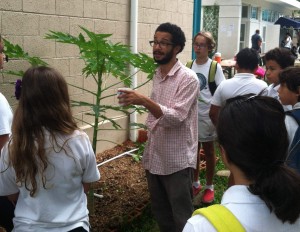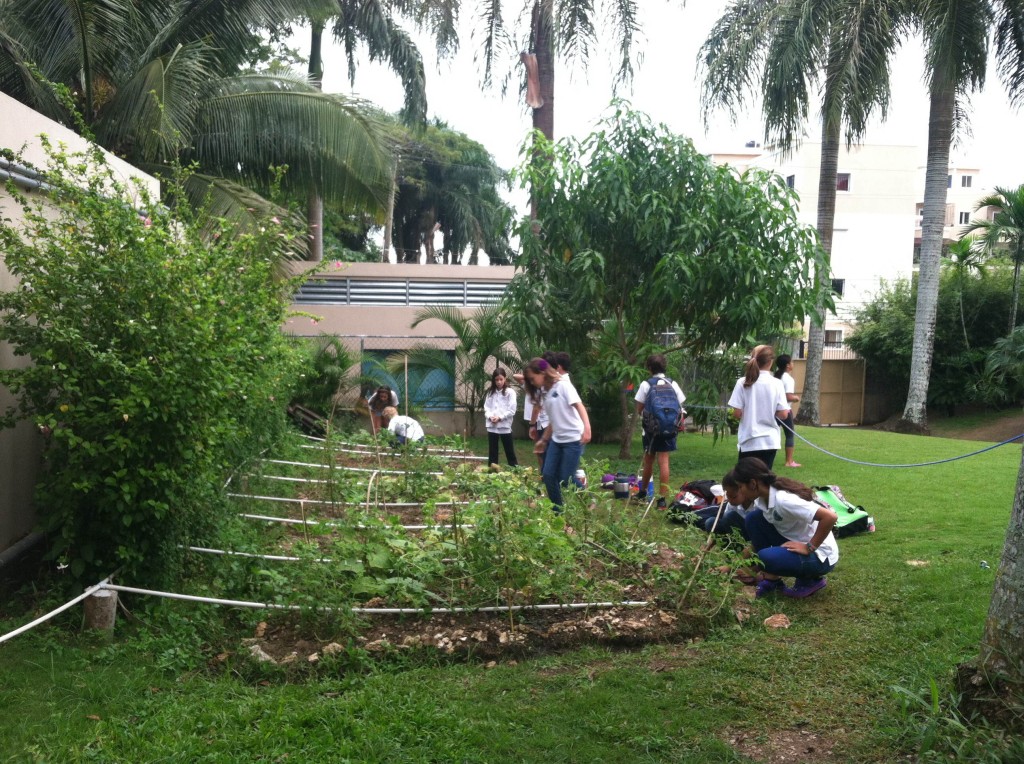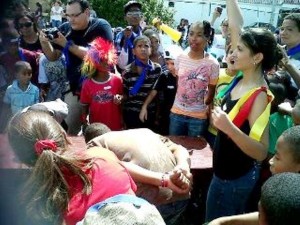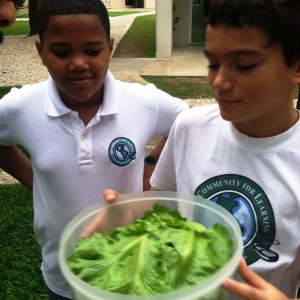Our Little Slice
This is a guest post written by Valerie Martinez, one of the Community for Learning’s sixth grade teachers, who is currently running a garden project with her students. Enjoy!
According to Merriam-Webster, the word paradise has a fascinating beginning. Its origin weaves through Latin, Greek and Persian, meaning “an enclosed park” in each language. This would be a place of leisure and (natural) beauty, protected by walls or any other type of partitions. Here at TCFL, we have our own little slice of paradise. Protected? Check. Natural beauty? Absolutely. One purpose? Never. That’s not how we do things here.
Our goal here is to squeeze the juice out of each experience. We strive to embrace mistakes and cautiously accept perceived victories as learning experiences. Our thrills are sought through trial and error: we aim for the process, not just the product. The beauty of the run, not just the prestige of the finish line: our methodology at the school. And it’s beautiful… but definitely not easy. One of the many cases in which we have tested this has been our garden.
In 2011 we were approached by Laura Tejeda, a former TCFL teacher. She had a project in mind and decided that 6th grade was the level at which to make it happen: a sustainable garden. Students would have to observe their areas, research characteristics, choose what to plant accordingly, assess their process, and make corresponding changes if needed. As global citizens, we were thrilled at the chance of further instilling the importance of nature and nutrition in our kids. Who wouldn’t? As teachers, we keenly rubbed our hands together thinking of the fun we’d have connecting this project to our Poverty unit and our Math class. Then it dawned on us: this journey would be embarked on with heaps of enthusiasm but little-to-no experience in the matter and no assistance except for our own. We weren’t given tools, guidelines, feedback, or follow-up outside of school.
The first year of the garden had an excitingly terrified tinge to it. We received help from the entire staff and wanted to reach for the moon. We even helped plant a garden in an NGO for children with a different family formation. But reality forced us to pace ourselves; we need to crawl before we could walk. And since the kids hadn’t really absorbed the knowledge required to complete the garden, they didn’t completely internalize the lesson behind it either. In some, this left them with a sense of “the school year is over, so is thinking about the garden.” Out of sight, out of mind.
The second year was different: we had a new structure, a new team, and a new schedule. It was no longer a “borrowed project” – it was now part of the TCFL curriculum and treated as such. But it wasn’t until this year, our third attempt at the garden, where independence (a TCFL staple) came into play. As always this is an ongoing process: we are still working out the kinks as they come along. How? By making solid plans where the kids are learning and working nonstop, alternating reading/analyzing/writing data with hands-on work, and showing them how everything is connected to what we do. The main results to date are:
 6th graders spontaneously researching and caring for the garden on their own time;
6th graders spontaneously researching and caring for the garden on their own time;- looking for solutions to previously unknown dilemmas like pests;
- seeing the process through from prepping, planting, harvesting, selling, to eating;
- giving advice to buyers and others interested in having their own plots at home;
- making sporadic connections between their tasks and outcomes to the rest of their subjects; and
- developing a deep sense of ownership and responsibility of their own accord.
We’ve realized over time that our garden doesn’t just grow plants.It isn’t only a source of sustainable nutrition, a whole-school project, an aesthetic factor, nor a way to link all subjects (however much we enjoy freewriting amongst the lush greenness) – it is a lifeline for all of us. Our garden, our garden is a reminder of who we are, where we come from, what we’re capable of, and how this ties each one of us as learners, individuals, and members of a system far greater than we can fathom.
And that’s what makes it a paradise.




What progress. Great idea Laura. Must be nice to see the results.
Each school morning, without exception, the garden is the first stop for most of the sixth graders before they head upstairs to homeroom or out for flag-raising — speaking from from the vantage point of my office. I have been impressed with the knowledge they’ve acquired through this experience.